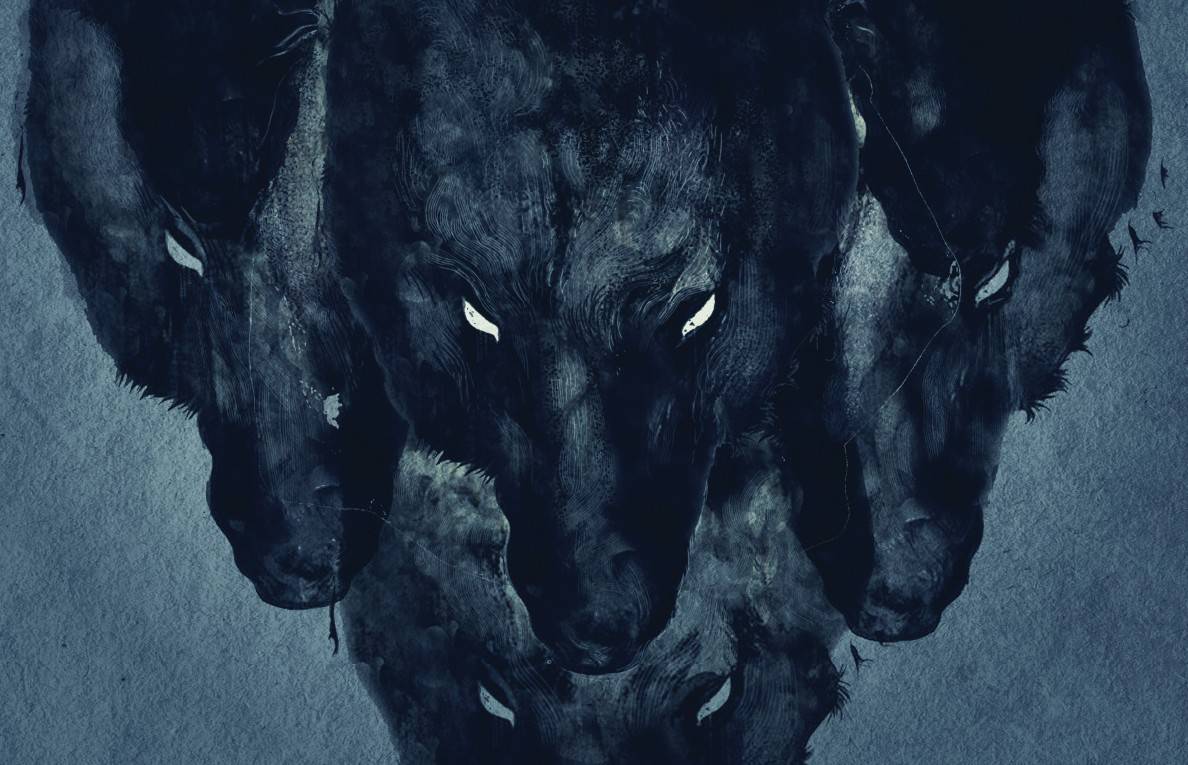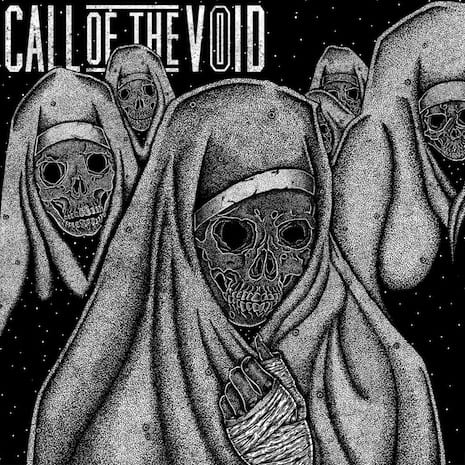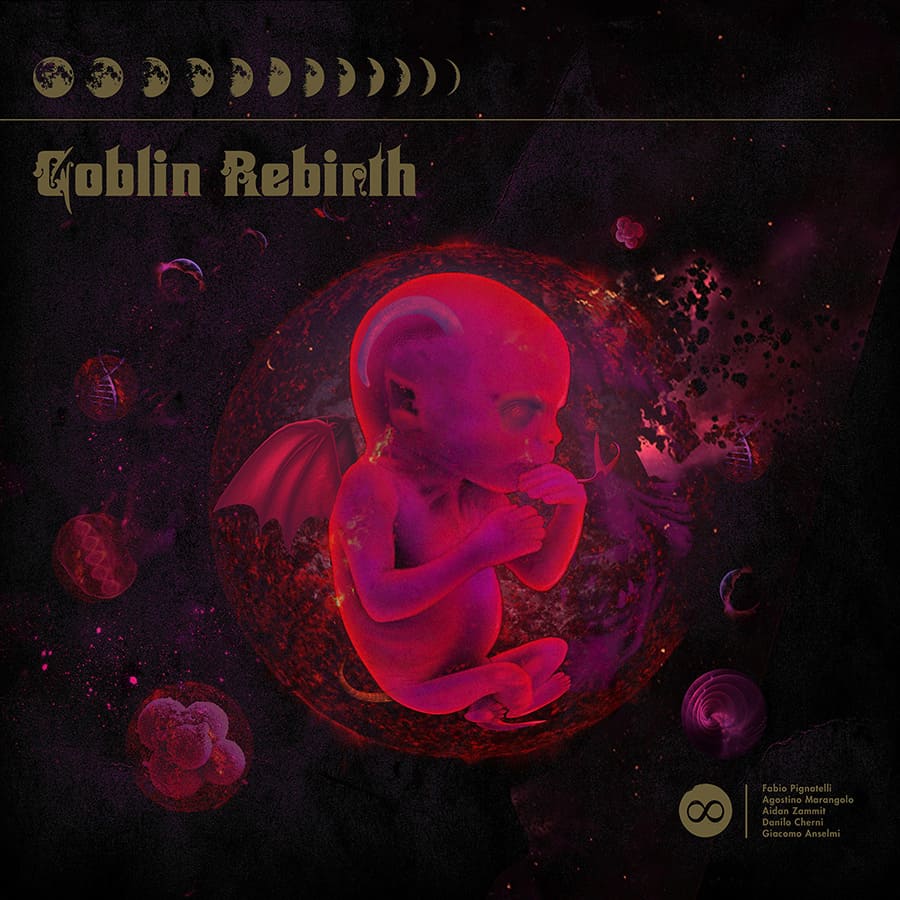
Album Review: GOBLIN REBIRTH – GOBLIN REBIRTH
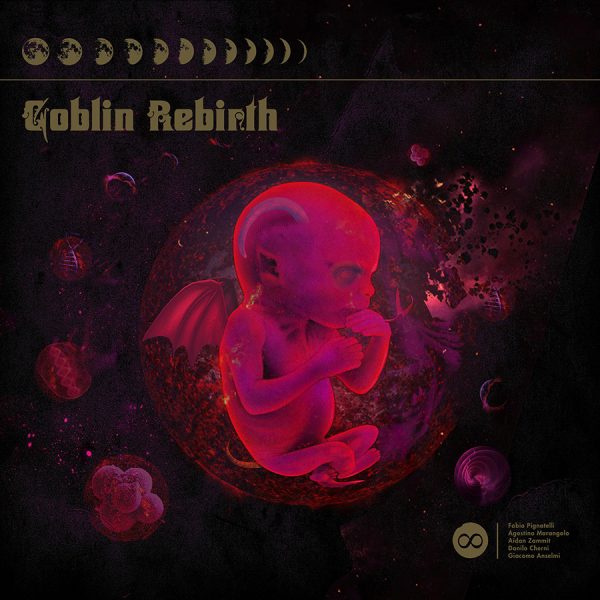
I am a self-proclaimed giallo fiend. I didn’t really care that much for horror (outside the tentpole films like ALIEN and Dawn Of The Dead) until I saw Suspiria for the first time. The Dawn of the Dead score is a fantastic one but it lurks and shadows the film, waiting for the right moment to attack, differentiating itself by merit of mixing soundscapes with dissonance. Goblin’s score for Suspiria is a musical black swan, emerging fully-formed from the magickal intersection of prog, psychedelia and the cinematic works of Goblin’s forbears Stelvio Cipriani and Bruno Nicolai. It wasn’t subtle (or even, arguably, a suitable film score) but, at the same time, it had a mystique and richness unlike any score before it. At the time, the band Goblin was comprised of five players: Massimo (guitars), Fabio (bass), Agostino (drums), uncredited keyboardist Maurizio and lead composer Claudio Simonetti. Goblin’s career, in this form, was relatively short but quite illustrious; their debut LP Roller was a hit and the following film score, Suspiria, accelerated their ascent, peaking with the success of their soundtrack for Romero’s Dawn of the Dead. They would collaborate with Dario Argento twice more with Tenebre and finally Phenomena, but neither films featured their works as prominently as Suspiria or Dawn of the Dead and a year later, the handful of tracks scomposed by Goblin for underrated gothic horror La Chiesa. Despite their massive, inestimable impact on the body of horror soundtracks plus their contributions to the soaring prog rock tidal wave of the late ’70s, Roller was one of the few non-soundtrack albums prior to their dissolution in 1982, the other (Volo) being mostly ignored. Lead composer Claudio Simonetti released at least two other horror soundtracks under his own name during this time, underscoring the importance of his presence in the band.
At this point, they’ve undergone several bizarre permutations; they reunited in their “classic” incarnation long enough for a year long tour then dissolved again, only to split in half, with Simonetti claming the original “Goblin” moniker, despite the absence of ANY of the key players of the classic lineup. Thankfully, the prospect of a fully-funded North American tour under that name enticed the original group to reunite. The fruits of this tour now presents itself in the form of a new full length album from Goblin Rebirth, consisting of every member of the original Goblin except lead composer Claudio Simonetti and lead guitarist Massimo Morante. It’s hard not to approach this release, despite its association with bastion of quality Relapse Records, with a dose of cynicism; John Carpenter recently released an LP of original music this year as well to some acclaim and it’s hardly a stretch to imagine that the band seeks to mine that vein of nostalgia as well. Is this a genuine attempt to reinvigorate the heady mix of prog and psych they pioneered or just a cash-in, like so many of the offshoots various members of the band pursued in the interim?
The cover art immediately does them no favors; the much loved Roller LP featured an iconic winged devil wielding the standard issue violin and, in a (perhaps appropriately) cheesy nod to that cover, the new LP has an embryonic (p)reincarnation of that devil. Despite the absurdity of it, the cover art has enough verve and clever detail to elevate it to a level worthy of sharing wall space with the original Roller cover. The song titles, though, are typical of a European rock band attempting to be “cool” in a language that’s not their first one. “Book of Skulls” and “Evil In The Machine” jump all the sharks, stomping right on past “endearingly goofy” into the realm of satire. Still, it’s a surprisingly accurate indicator of what you’re putting in your earholes with this album.
“Book of Skulls,” for example, opens with a bass driven rhythm that, delightfully, a deliciously lurid synth riff dances on top of. But rather than try to drive that riff into the ground, it devolves into a dizzy, narcoleptic spiral of synths mixed far back enough to elicit creepiness and not campiness. Eventually, though, a bold, pedal-saturated guitar echoes this melody, then takes center stage, morphing the song from a very Goblin-esque tune into a Guitar Hero-worthy cheese fest, sustained by a thankfully brainy bass-and-drum dance. Goblin Rebirth, wisely, invigorates the song’s climax by reeling in the heroics and letting synths reign supreme, amplified by the low-end guitar menace.
The ominously titled track “Forest,” evoking one of the most spine-chilling scenes in Suspiria, is absolutely nothing of the sort. It opens with a huge organ sound that is paired with a female singer, chanting beautifully an indiscernible refrain, and initially made me wonder if Goblin Rebirth secretly wished they were Within Temptation but, saving their own asses yet again, a dissonant, reverb-choked bass stab cuts in and adds a wallop of menace. Sadly, guitarist Giacomo Anselmi’s ego engulfs the song whole as he engages in the most un-Goblin-esque soloing that wouldn’t be out of place in a Rick Springfield track.
The track “Rebirth,” that would seem to hold some promise, given the name’s significance to the band, starts off yet again with a delicious synth riff of ominous tone but is quickly subverted by the Eastern-inflected guitars that courageously gallop right over the spookiness. Even a respite, later on in the track, in the form of a short synth coda that sounds like Simonetti tossed them a bone, is buried before it gets to have any real significance.
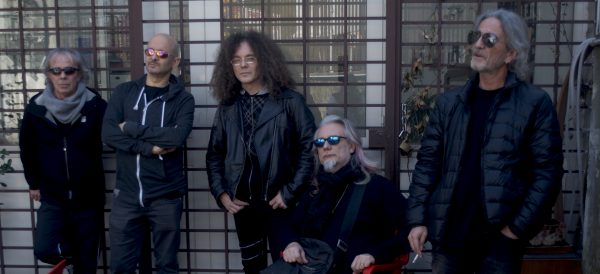
It’s not that Goblin Rebirth’s new album is a bad one. The high end production, the focus on the ear-pleasing drums and bass and the well-structured compositions prove that at least half of this formation is worthy of the very, very heavy crown upon which is inscribed the name “Goblin” but guitarist Anselmi needs to be reined in with prejudice; none of Goblin’s iconic moments were guitar-driven and, truth be told, it was Simonetti’s stabbing, spectral synth melodies that dominated and defined the name of Goblin. What this album does prove is that if Simonetti rejoined them for their next recordings, putting his brilliant composition skills (if they indeed still hold water) in play, they’d have a truly unforgettable album. As it is, Goblin Rebirth is an enjoyable but engaging exercise in the sincerest form of flattery.

